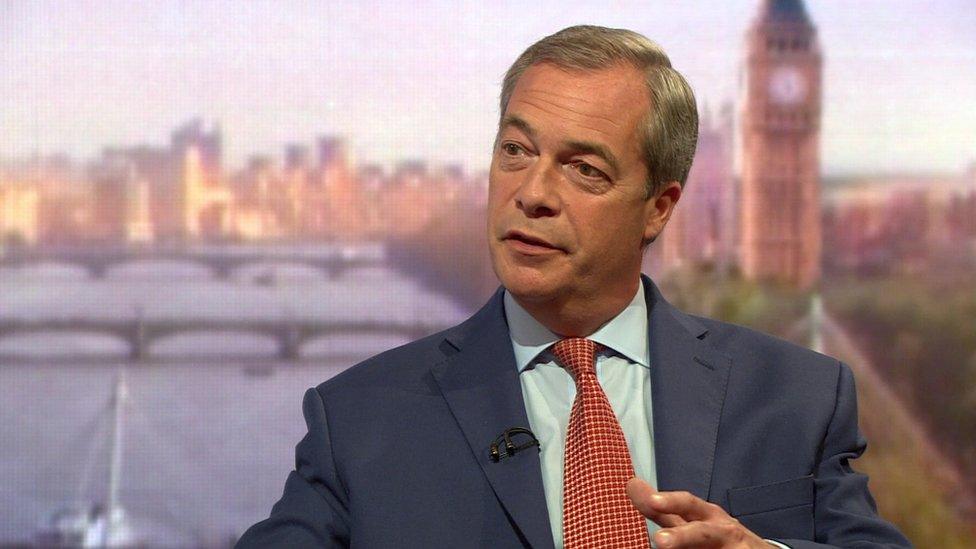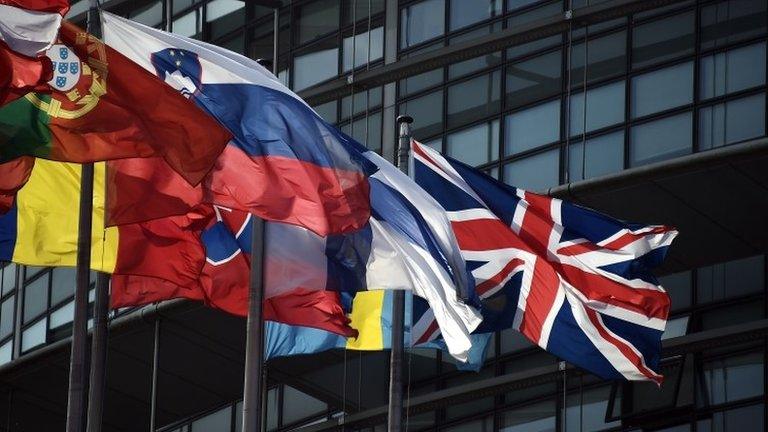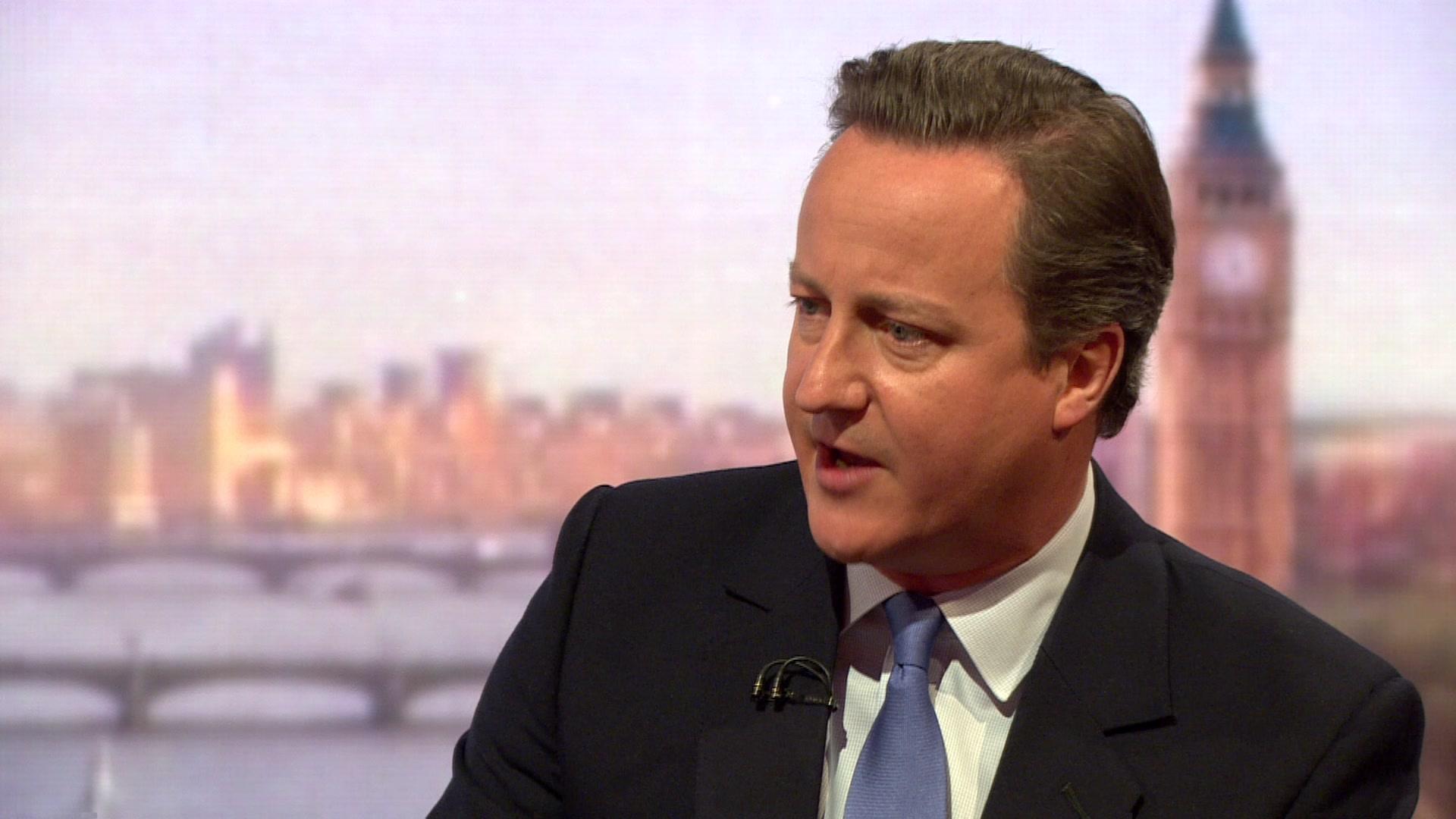EU referendum: Voters have 'had enough of threats' - Nigel Farage
- Published

Voters have "had enough of being threatened" by the prime minister and chancellor, prominent Leave campaigner Nigel Farage has said.
Remain campaigners argue the UK will suffer a recession if it opts to leave the European Union.
But the UKIP leader hinted on BBC's The Andrew Marr Show that people had begun to see through the "scare stories".
He added: "I think collectively people are beginning to put two fingers up to the political class."
Mr Farage also downplayed the impact Brexit could have on the value of sterling after the FTSE closed down 116 points on Friday.
'So what?'
He said: "I did work in this area for 20 years, I know a little bit more about it than most people.
"Sterling is up since March. Since Brexit became a possibility sterling is up and FTSE is exactly the same level it was in March and what happened on Friday were very bad economic figures from America and the fact that our growth forecasts in Britain have been downgraded from 2.5% to 2% and that our borrowing is still out of control.
"Again, these are ludicrous scare stories that are being put out.
"Even if sterling were to fall a few percentage points after a Brexit, so what?"
But later on the same programme, Prime Minister David Cameron warned that if the pound fell post-Brexit the prices in shops would rise.
He also said that several independent economic forecasters had predicted a recession if the UK decided to leave the union.
He told the show: "I totally accept that people are confused by having so many statistics and that there is a lot of frustration because of that.
"But I think it is actually my job as prime minister, when you have got information coming from independent forecasters... to talk about those risks and it would be very irresponsible not to."
HIV treatment
Mr Farage questioned the neutrality of organisations like the Institute for Fiscal Studies (IFS), saying that three quarters of its funding came from the British government and the European Union.
"You don't bite the hand that feeds you," he said.
Mr Farage went on to say that he believed there had been a "shift in the last fortnight" and a change in the debate about the EU referendum - for which voters will go to the polls on 23 June.
"People have had enough of being threatened by the prime minister and the chancellor and I think collectively people are beginning to put two fingers up to the political class," he said.
He was also asked about claims he made earlier in the year when he said migrants were using the NHS for HIV treatment.
He said: "Should we say to people from all over the world if you've got a very serious disease we are very happy for the National Health Service to provide whatever healthcare you want, at the same time as it now takes people all over Britain a fortnight to get a GP appointment?
"It's about priorities, isn't it? And my priority would be we put our own people first. It's about time we did."
The IFS hit back at the UKIP leader, saying that although it did receive some funding from research councils supported by the UK government and the EU, this did not in any way influence its work.
In a statement on its website,, external the think tank said it had been "fearless and beholden to nobody" throughout its 40-year history and that Mr Farage's comments were "an attack not just on the IFS but suggest that academic independence does not exist".
- Published11 June 2016

- Published12 June 2016
